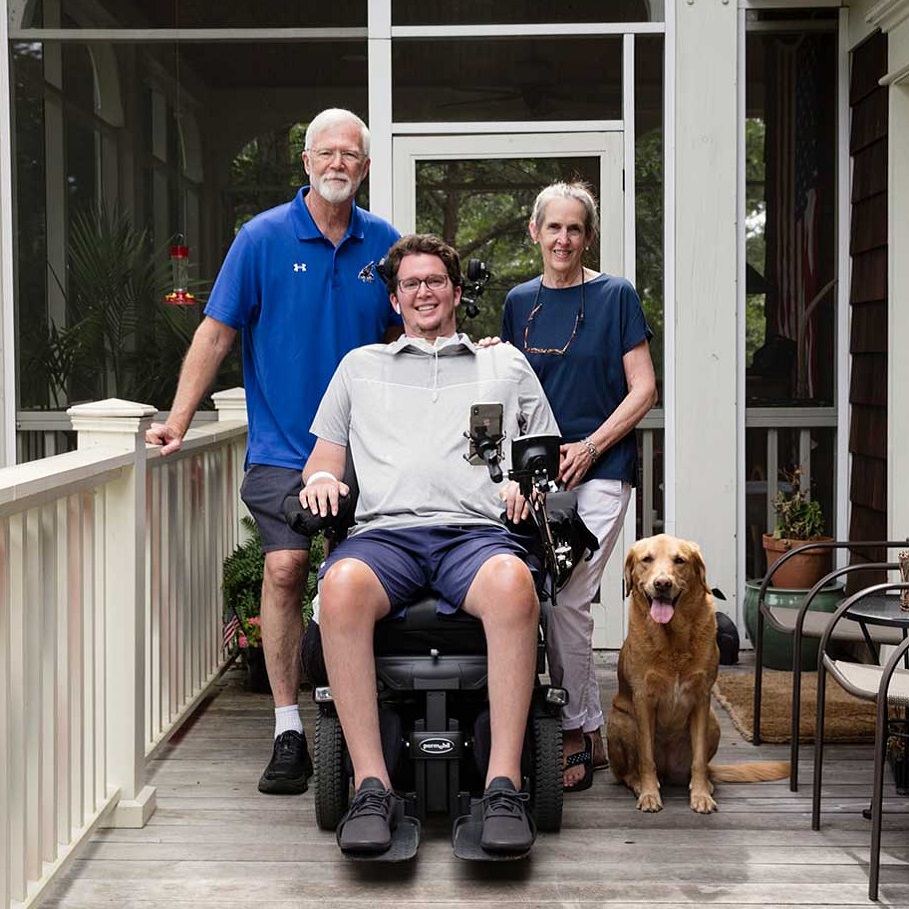Close to Home

January 18, 2019
Debilitating Pain
Micki, who works for Hackensack Meridian Health, took Robert to the Emergency Department at Bayshore Medical Center, near their home. After a CT scan and evaluation, he was released with medication for his pain.
Unfortunately, it wasn’t enough. Less than 24 hours later, while at work, Robert lost the use of his legs. “It was scary. My partner had to drive me home, and Micki took me back to the hospital,” he recalls.
This time, Robert was admitted and Howard Eisenbrock, D.O., a neurosurgeon at Bayshore, was called. After an MRI, Dr. Eisenbrock determined that Robert’s lumbar spine had a very large herniated disc, which occurs when spinal discs push outward, compressing the spinal nerve roots as they exit from the spinal cord.
“Robert had a few treatment options to choose from,” says Dr. Eisenbrock. “He could try conservative treatments, such as physical therapy and injections, but I advised him that his case would eventually require surgery.”
Finding Relief
Robert decided to have the surgery, but Micki wanted to be sure her husband received the best care.
“After deciding to have the surgery, I called around for a second opinion. In the end, we chose to stay with Dr. Eisenbrock in lieu of going to New York City,” Micki explains.
“Everyone I’d spoken with had said great things about him.”
Robert’s microdiscectomy, minimally invasive surgery removing small pieces of the spine and relieving spinal nerve column pressure, was booked for May 31, and it went perfectly. The pain that Robert came into Bayshore with was gone by that evening. He returned to work one week later and stood grilling for hours on Father’s Day.
Giving Thanks
“Dr. Eisenbrock’s bedside manner was so reassuring; he even called my cellphone to go over surgery details. I’ve already recommended him to family and friends,” Micki says. “Some people think they need to go to New York City for their care, but they need to know there is great care right in their backyard.”
Have Questions?
Dr. Eisenbrock’s answers to common questions about neurosurgery.
Breathing Again After Spinal Cord Injury

William Marshall no longer needs help from a ventilator 24 hours a day to breathe. “It’s made such a difference in my well-being and mental and physical health. For someone with quadriplegia, that’s crucial.”

The Future of Surgery: Virtual Reality
Discover how Virtual Reality (VR) technology is revolutionizing medical care at JFK University Medical Center’s Neuroscience Institute in New Jersey. Utilizing Surgical Theater’s cutting-edge VR technology, doctors and patients can embark on a 360-degree virtual tour of the patient's brain, enabling a comprehensive understanding of anatomical structures and pathologies, elevating precision and transforming patient outcomes.
